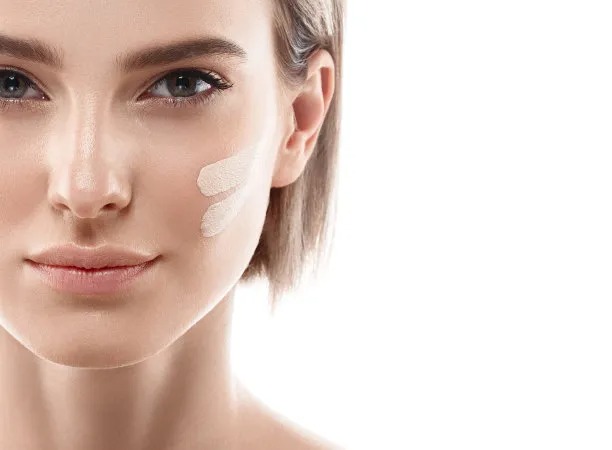HOME > COSMETIC SURGERY >
Jet Set Glow The Rise of Traveling for Cosmetic Surgery
original:health91192025-02-25 17:08:34
Summary: "Jet Set Glow: The Rise of Traveling for Cosmetic Surgery" explores the growing trend of individuals traveling to different countries for cosmetic procedures, seeking affordable options and h
Summary: "Jet Set Glow: The Rise of Traveling for Cosmetic Surgery" explores the growing trend of individuals traveling to different countries for cosmetic procedures, seeking affordable options and high-quality services. This article delves into various aspects of this phenomenon, including reasons for its popularity, potential risks and benefits, ethical considerations, and the impact on the global healthcare industry.
1. Popularity of Cosmetic Surgery Tourism

In recent years, there has been a significant increase in the number of people opting to travel abroad for cosmetic surgery. Factors such as lower costs, access to advanced technology, and the allure of combining medical procedures with leisure travel have contributed to the popularity of cosmetic surgery tourism.
Patients are drawn to destinations known for their expertise in specific procedures, offering a wide range of options from minimally invasive treatments to major surgeries. The rise of social media influencers and celebrities openly sharing their cosmetic surgery experiences has also fueled the trend, influencing others to seek similar transformations.
Moreover, the lack of insurance coverage for elective cosmetic procedures in some countries has led individuals to explore international options, where competitive pricing and tailored packages appeal to a global audience seeking aesthetic enhancements.
2. Risks and Benefits of Overseas Cosmetic Surgery
While traveling for cosmetic surgery presents numerous advantages, including cost savings and access to specialized treatments, it also carries inherent risks that require careful consideration. Patients must evaluate the credentials and reputation of foreign clinics, ensuring they adhere to international standards of safety and ethics.
Language barriers, differences in medical regulations, and limited post-operative care can pose challenges for individuals undergoing procedures abroad. Complications arising from long-distance travel and prolonged recovery periods may impact the overall success of cosmetic surgeries performed in unfamiliar settings.
On the other hand, the ability to recuperate in a serene environment away from the demands of daily life can enhance the healing process and provide a rejuvenating experience for patients. Some individuals find comfort in the anonymity offered by overseas clinics, allowing them to undergo transformative treatments without fear of judgment or scrutiny from their local communities.
3. Ethical Considerations in Cosmetic Surgery Tourism
The ethical implications of traveling for cosmetic surgery raise concerns regarding patient safety, informed consent, and the commodification of beauty standards. Healthcare professionals and regulatory bodies emphasize the importance of thorough pre-operative assessments, realistic expectations, and transparent communication between patients and providers to uphold ethical standards in cosmetic procedures.
Issues such as cultural differences in beauty ideals, pressure to conform to societal norms, and the commercialization of cosmetic enhancements underscore the need for ethical guidelines that prioritize patient well-being over profit-driven motives. Informed consent processes should include comprehensive information on the risks, benefits, and alternatives to cosmetic surgery, empowering individuals to make informed decisions about their aesthetic goals.
As the boundaries between medical tourism and cosmetic surgery blur, ethical considerations play a crucial role in safeguarding patient rights and ensuring the ethical practice of cosmetic procedures in a global context.
4. Impact on the Global Healthcare Industry
The rise of cosmetic surgery tourism has far-reaching implications for the global healthcare industry, reshaping traditional healthcare models and driving innovation in medical tourism services. Destination countries with established reputations for cosmetic surgery excellence stand to benefit from increased revenue, job creation, and technological advancements in aesthetic medicine.
However, the influx of international patients seeking cosmetic treatments may strain local healthcare resources, leading to concerns about healthcare disparities, regulatory oversight, and the quality of care provided to both domestic and foreign patients. Healthcare providers must strike a balance between accommodating the needs of medical tourists and maintaining equitable access to healthcare services for their resident populations.
Collaborative efforts between countries, healthcare institutions, and regulatory agencies are essential to establish standardized practices, quality assurance protocols, and ethical guidelines that support the sustainable growth of cosmetic surgery tourism while ensuring patient safety and satisfaction.

Summary:
"Jet Set Glow: The Rise of Traveling for Cosmetic Surgery" sheds light on the evolving trend of cosmetic surgery tourism, exploring the motivations, risks, benefits, and ethical considerations associated with seeking aesthetic enhancements abroad. As individuals increasingly prioritize personalized care, affordability, and global accessibility in cosmetic procedures, the industry must adapt to meet the changing needs of a diverse patient population.
This article is published by HEALTH9119 Medical Health Network https://www.health9199.com arrangement